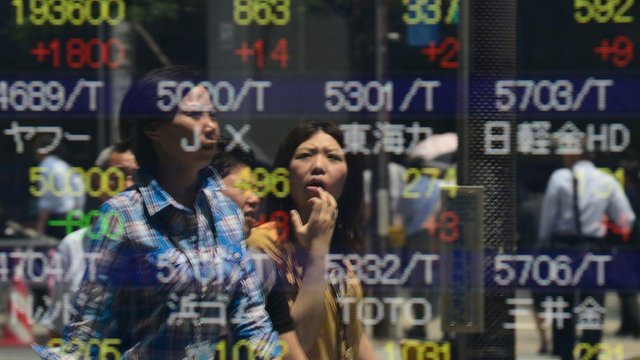
Japanese markets show a little change after PM Shinzo Abe was given a vote of confidence for his economic policy known as “Abenomics”.
As widely predicted, Shinzo Abe has won a majority in parliament’s upper house in Sunday’s elections, according to exit polls.
After climbing 1.2% in early trading, the benchmark Nikkei 225 fell back to be level for the day at about 14,590.
Analysts said the outcome had already been factored into trading strategies.
Since becoming prime minister late last year, Shinzo Abe has introduced policies aimed at ending long-running deflation in Japan and boosting growth.
“We’ve won the public’s support for decisive and stable politics so that we can pursue our economic policies, and we will make sure to live up to the expectations,” Shinzo Abe told public broadcaster NHK after he was projected to win.

Analysts said Shinzo Abe could now work to implement painful economic reforms referred to as the “Third Arrow” of his set of policies. The first two arrows were an ultra-loose monetary policy and government spending.
“It raises expectations that legislation will pass more easily and he can focus on revitalizing the economy,” said Takuya Takahashi from Daiwa Securities.
Takuya Takahashi added that foreign investors were reacting positively to the prospect of Japan’s first stable government since 2006.
“The likelihood that there will be no national election for the next three years is positive,” he said.
“What investors are looking for is a stable government and they are watching how Abe can tackle deflation.”
Japan has seen much political upheaval because of a “twisted parliament” where the opposition had control of the upper house.
NHK said early on Monday that Shinzo Abe’s Liberal Democratic party and its coalition partner had won a comfortable majority in the chamber.
Shinzo Abe’s policies so far have been well received by investors, with the Nikkei up about 40% this year.
The yen has also weakened in value about 15%, making exporters more profitable.
Analysts said whether the gains in the Nikkei can be extended depends on whether the dramatic structural reforms will go ahead.